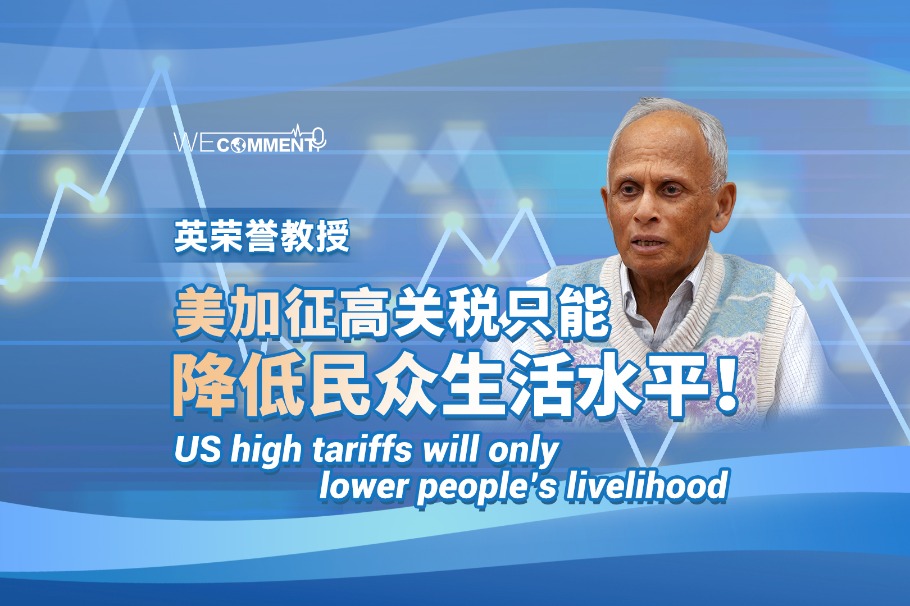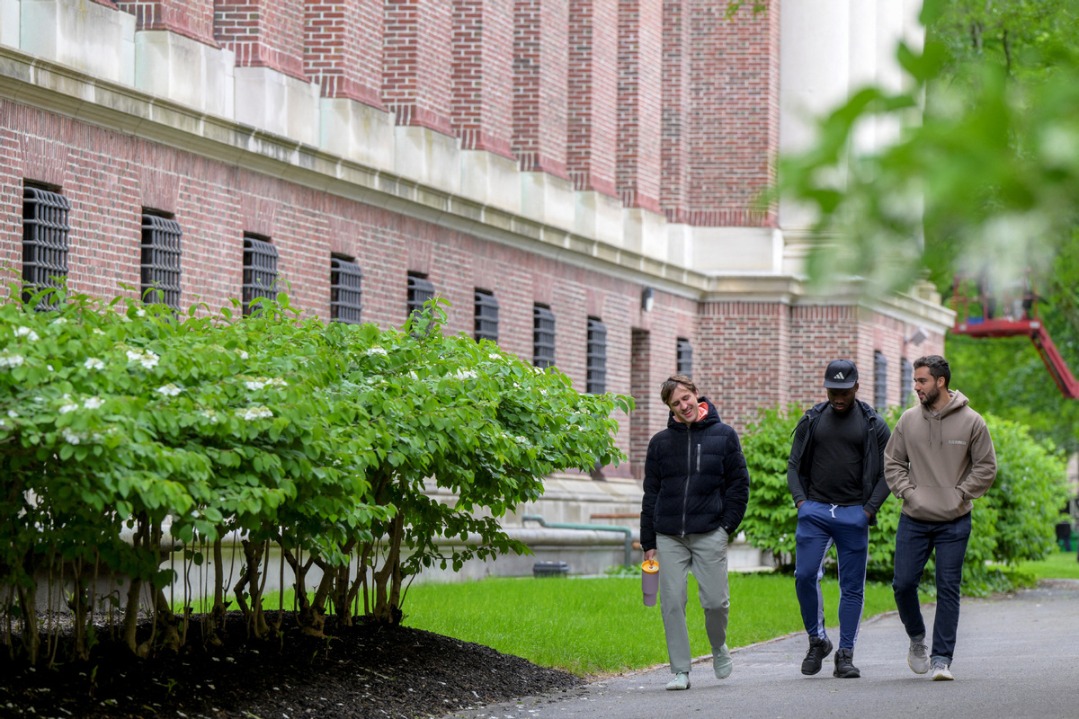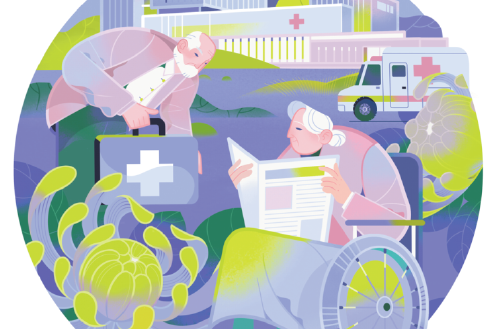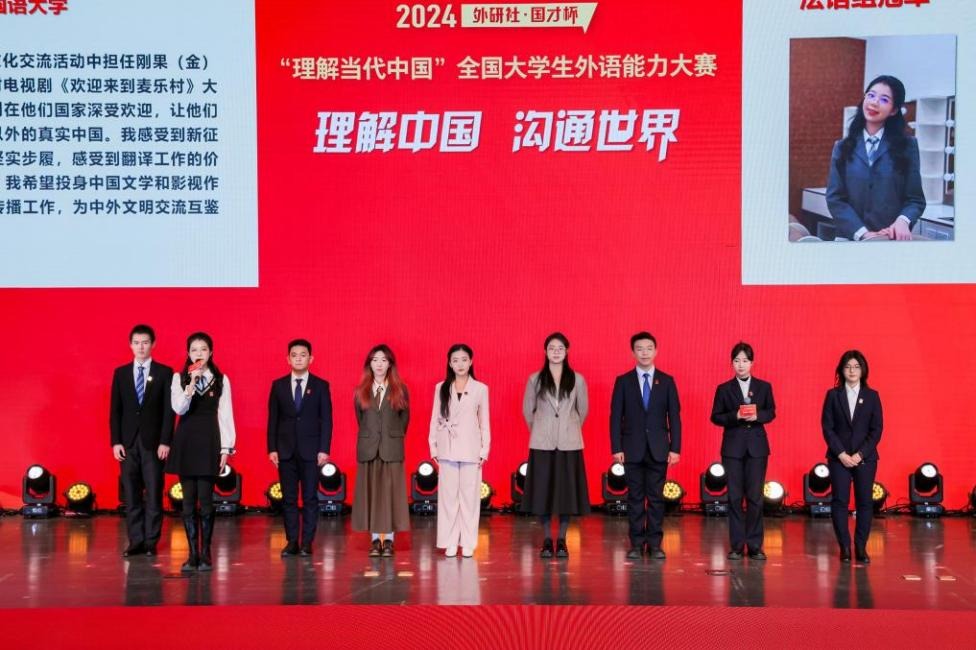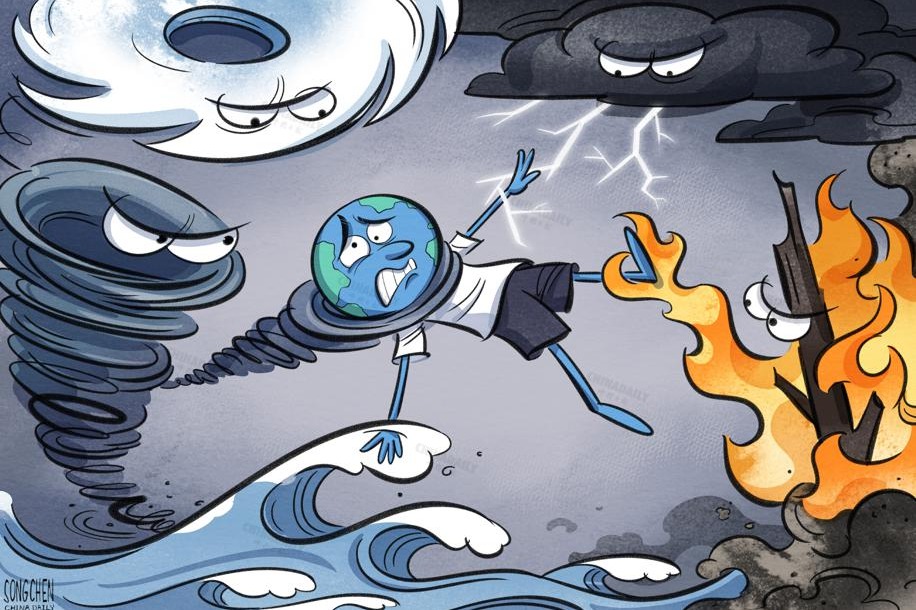Renewal or decline


JIN DING/CHINA DAILY
The United Nations needs to be remodeled so that it is the hub for global governance
This year marks the 80th anniversary of the birth of the United Nations as well as the end of World War II. It is largely thanks to the UN that World War III has been averted so far. But the future of the UN hangs in the balance. Humanity stands at an inflection point of peace or peril. Which path humanity will take depends on the action, or lack of it, taken by humanity as a whole.
A perfect storm of existential threats against the whole of humanity is coming from three directions: the resumed specter of a nuclear winter; the rapidly intensifying climate disaster; and the unknown risks from the loss of human control of emerging technologies. The existential threat is worsening on all three fronts. But the efficacy of the global response to these challenges is declining due to the growing glitches in the global governance system. Major power rivalry is back, since the short-lived honeymoon of the post-Cold War period was over at the beginning of the 21st century. As a result, global consensus is retreating and the global leadership deficit is growing. The pace of technological development is moving at seemingly light speed, while the normative effort to contain the negative consequences is moving like a snail.
Multilateralism, the main institutional vehicle to drive the norms, is under severe stress. The most visible symptom is the paralysis of the UN Security Council in the face of the regional conflicts in Europe and the Middle East which seriously threaten the international peace and security. Global leadership is in short supply. The deficit in the provision of global public goods is rapidly growing. On the one hand, the demand for global public goods is rising exponentially, while their supply is shrinking on the other hand. One prime example is humanitarian assistance. The number of refugees and internally displaced people around the world has increased nearly five times since 2007, from 25 million to over 120 million. Unfortunately, the number continues to go upward, as most of the ongoing conflicts show signs of not abating, but aggravating. The gap between the need for humanitarian assistance and the supply of necessary resources is rising due to donor fatigue and the retreat of global leadership. The current administration of the United States is likely to add fuel to this problem.
In the face of these global crises, the performance of the UN is both disappointing and troubling. It's disappointing as it is seen as ineffective in mitigating global risks. It's troubling as humanity does not have any better recourse. The stark reality is that humanity cannot afford to get rid of the UN which has assumed the position of the largest global service provider. This is not an outcome by intention but by default. The founding fathers of the UN may have not dreamed of such a function falling on the shoulders of the UN system. The enormity and scale of global service provision has already surpassed the capacity of the UN to provide, and the provision gap is bound to grow. Regardless of whether one is disappointed with the UN or not, undeniable is the fact that without the UN, no country or organization, no matter however powerful or resourceful, would be able to perform this function.
The way forward is clear. The UN has to go on. But the UN must get better. It is incumbent on all members of the UN to renew its purpose fit for the demands of the 21st century and enhance its efficiency in the digital world and in the age of artificial intelligence. This will be an uphill task amid the declining global leadership and weakening global consensus. But it is not impossible, either, if we can mobilize the will of the whole of humanity.
This requires a global public-private partnership. The role of governments is crucial as the driver of this process. But governments cannot do the job alone given the urgency and seriousness of the tasks ahead. They need help from academia, civil society and businesses. In the age of globalization, the catchphrase was "thinking globally and acting locally". This is no longer sufficient at a time of ever-worsening global existential threats including, in particular, climate and other sustainability crisis. Solutions must be planetary. Global peace among humanity is not sufficient. Planetary peace with nature needs to be incorporated and prioritized across national borders. Then the new catch phrase should be "acting planetarily while still thinking locally". In view of the complexity of challenges, multilayered multilateralism needs to be facilitated through a diverse ecosystem of institutions, networks and processes. The UN must be renewed as the hub for planetary governance. Humanity does not have any better option for the next 80 years.
The author is the former under-secretary-general of the United Nations. The author contributed this article to China Watch, a think tank powered by China Daily.
The views do not necessarily reflect those of China Daily.
Contact the editor at editor@chinawatch.cn.


















